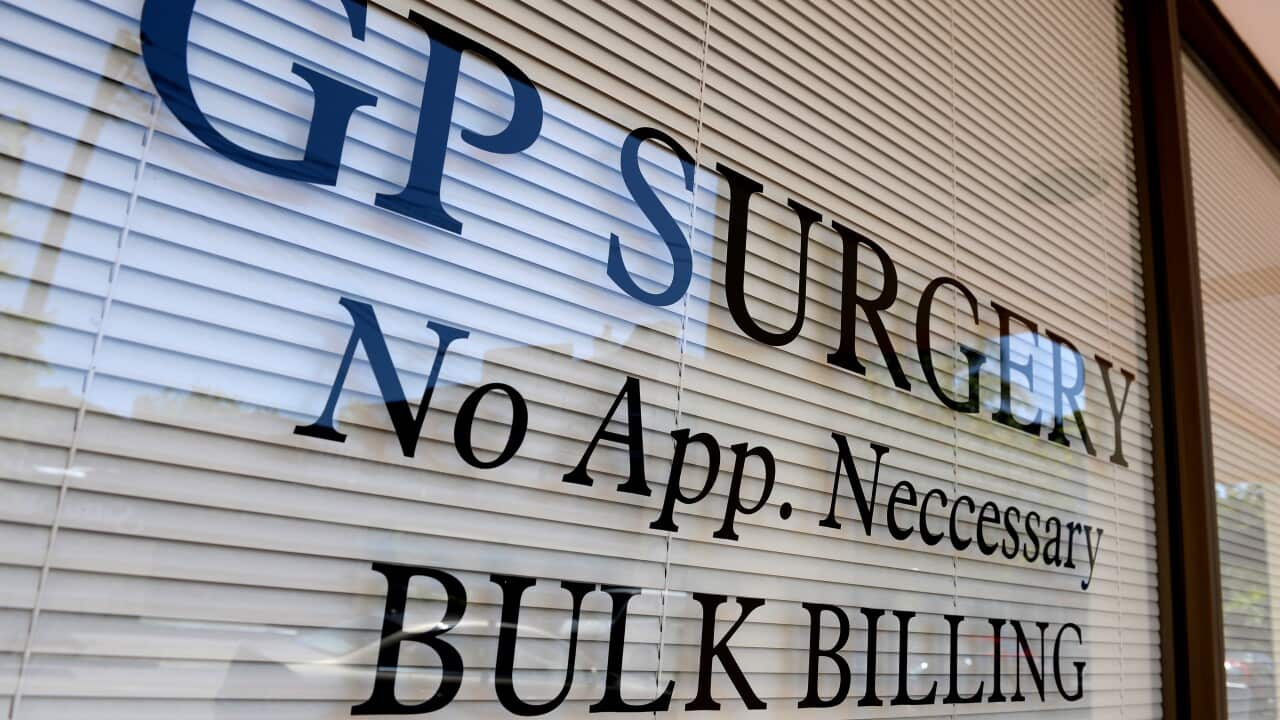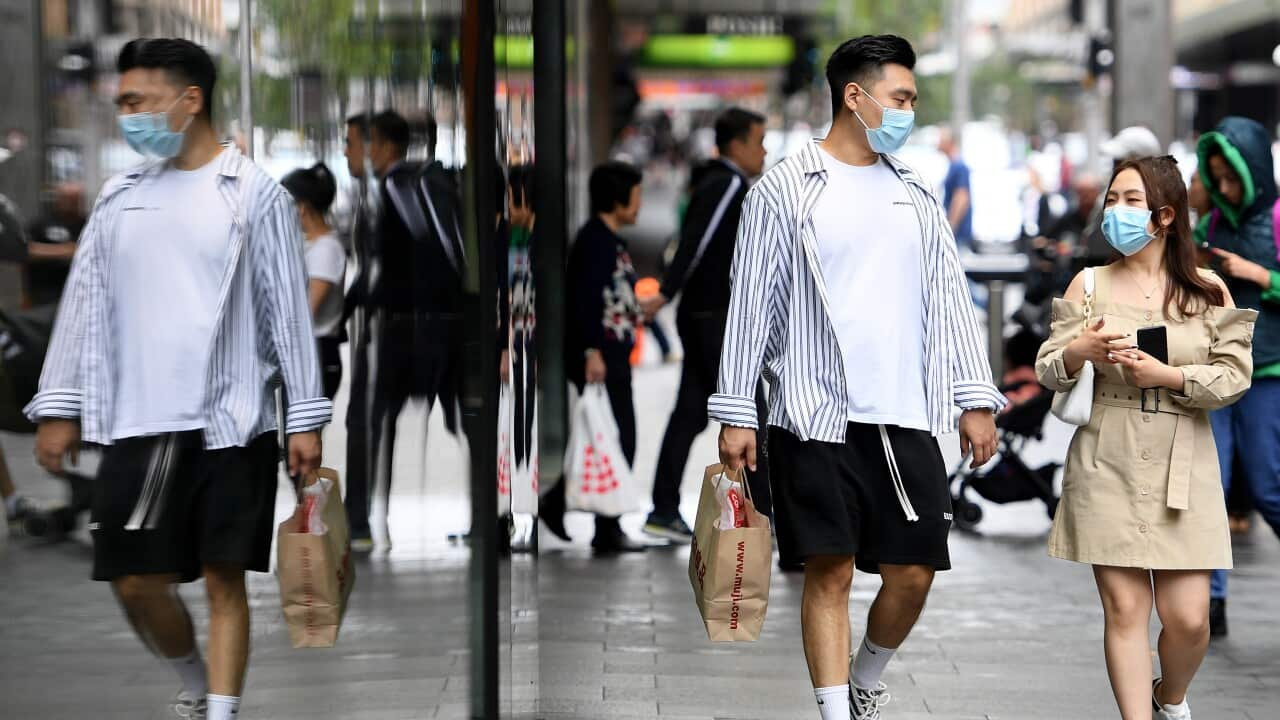Sydney GP Danforn Lim says for years the annual increase in rebate amounts have not met inflation, forcing some health professionals to ask for gap payments from patients to break-even.
“The [proportion of] benefit payments paid to health professionals have continuously been reduced over the past decade, so a lot of my [GP] colleagues no longer accept bulk billing,” he told .
“Many of them have moved to a 100 per cent private billing model, which is definitely a loss for patients.”
From July 1 this year, the Medicare benefit paid for GP attendances was increased by 1.6 per cent to $39.75 per consultation, a 65-cent increase from the $39.1 provided last financial year.
The slight increase has not kept pace with the latest 6.1 per cent inflation rate announced late July.
Professor Lim says the increase is by no means sufficient to cover his increased overhead costs, including the nearly five per cent pay rise for his receptionists.
“Some other costs include rent for the clinic, utilities, practising license fees, membership fees for the Royal Australian College of General Practitioners (RACGP), insurance premiums, etc.” He says some GPs are choosing to absorb the gap payments themselves rather than ask their patients to succumb to extra financial burden.
He says some GPs are choosing to absorb the gap payments themselves rather than ask their patients to succumb to extra financial burden.

Professor Danforn Lim says for years the annual increase in rebate amounts have not met inflation. Source: Supplied/ Danforn Lim
“It is purely the choice for them [health professionals] to accept bulk billing without asking for a gap fee payment. It doesn’t necessarily mean the benefit was enough to cover the costs, nor that the benefit paid was the actual price of the consultations,” he said.
He says the $39.75 rebate only represents about 38 per cent of the average cost for a general consultation.
Professor Lim adds, after deducting operating costs and bill payments, GPs only tended to make a $10 profit from each consultation.
GPs quitting the bulk billing model
Current regulations prohibit GPs from squeezing in more consultations within a day, therefore it was not possible for practitioners to “work harder for more income”, he says.
“For this reason, many practitioners opt for mixed billing, if not they retire early, while some new graduates choose not to become GPs,” Professor Lim said.
Melbourne nurse Lynne Leung says requiring Australians to pay gap fees would indirectly place even more pressure on the already-strained healthcare system.
“There is already enormous pressure on hospitals and emergency departments. If the prices of going to GPs continue to hike, people will delay seeing a doctor. This will in turn create more burden on the hospital systems if the health of patients deteriorates,” she said.
“There is now an urgent need for the federal government to increase funding to the medical sector.” Melbourne resident Chris Wong* told SBS Chinese he felt the Medicare rebate was too insignificant and was avoiding after-hours or weekend visits to doctors’ clinics when they typically charged higher gap fees.
Melbourne resident Chris Wong* told SBS Chinese he felt the Medicare rebate was too insignificant and was avoiding after-hours or weekend visits to doctors’ clinics when they typically charged higher gap fees.

In March, former Minister of Health Greg Hunt said bulk billing rates were at 88.4 per cent in the December quarter 2021, which was 0.3 per cent higher than the same quarter in 2020. Source: Getty Images AsiaPac
“Unless I’m feeling incredibly unwell, I would wait,” he said.
According to Professor Lim, over the past decade, costs for patients attending GP consultations have increased by 50 per cent.
However, former Minister of Health Greg Hunt said in March this year, that GP bulk billing rates “remain at record high levels”, and “the number of Australians receiving essential medical care with no out-of-pocket cost [is] continuing to rise”.
, Mr Hunt said bulk billing rates were at 88.4 per cent in the December quarter 2021, which was 0.3 per cent higher than the same quarter in 2020, but it did not mention the rates were 1.2 per cent lower than the previous quarter (September 2021).
Further to that, the average patient contribution per GP service peaked in the March quarter 2021, at $42.79.
Speaking to the ABC, said Labor’s $750 million election promise to establish a new “Strengthening Medicare” fund would improve patient access to GPs.
“Our 50 Medicare Urgent Care Clinics across the country will be bulk billed… making it easier for Australians to see a doctor when you need it,” he said.

Federal Health Minister Mark Butler told the ABC, Labor’s $750 million election promise to establish a new “Strengthening Medicare” fund would improve patient access to GPs. Source: AAP Image/Morgan Sette
‘Patients missing out on the care they need’
Karen Price, President of the Royal Australian College of General Practitioners, told that its members were starting to take action to ensure the sustainability of general practice, by passing on costs to patients where feasible.
“It’s a challenging conversation, but… this is about the sustainability of general practice, and we can’t maintain that if we bulk bill everybody. We just can’t,” she said.
She says the increase in Medicare rebates at the beginning of July .
“We have a new [federal] government and a new opportunity to make sure that Medicare rebates don’t result in patients missing out on the care they need,” Professor Price said.
According to Professor Lim, however, this is not only the case for general practitioners, but also for other health professionals, such as psychologists and physiotherapists. Sydney physiotherapist Raymond Lo says, depending on the experiences of the physiotherapists in his clinic, patients had the option to choose between fully bulk billed or pay gap fees.
Sydney physiotherapist Raymond Lo says, depending on the experiences of the physiotherapists in his clinic, patients had the option to choose between fully bulk billed or pay gap fees.

Other health professionals are also not provided with sufficient amount of rebates via bulk billing, such as physiotherapists and psychologists. Source: Getty Images
“Patients who choose our junior practitioners can be bulk billed without gap payment, while those who choose senior ones would have to pay for the gap fees,” he said.
He said providing rebates for patients to attend private physiotherapy practices does provide them with alternatives to public hospitals, where waiting lists are generally very long.
A physiotherapy session currently costs around $70 to $150 , depending on the location of the clinics, he said, but the Medicare system is only providing a $56 rebate.
“The $56 rebate barely covers our costs. We wouldn’t be getting substantive profits for sure, but it doesn’t put us in the red either,” Mr Lo said.
“As a business owner, I would need to monitor our costs very closely. When I review the salaries for staff, I must consider the limited increase in rebate rates.”
Rebates should be ‘more aligned with market rates’
Mr Lo says the government should refine the Medicare rebate system to encourage more medical professionals to allow bulk billing in full.
“Having said that, the rebate rates should be more aligned with the market rates. That would be a more reasonable approach I think,” he said. Professor Lim, however, acknowledges that it would be very costly if the government provides rebates that fully cover the costs for each GP consultation.
Professor Lim, however, acknowledges that it would be very costly if the government provides rebates that fully cover the costs for each GP consultation.

Woman patient and doctor checking blood pressure Source: Getty Images/Terry Vine
“The government has been emphasising that, when the Medicare system was established in the 1980s, its intention was not to fully cover the costs of medical professions.
“But we wouldn’t want our healthcare system tilting towards the wealthier population, where those who could afford it would be able to see a doctor quicker than others,” Professor Lim said.
SBS Chinese has sought comment from Services Australia.
* Name changed






